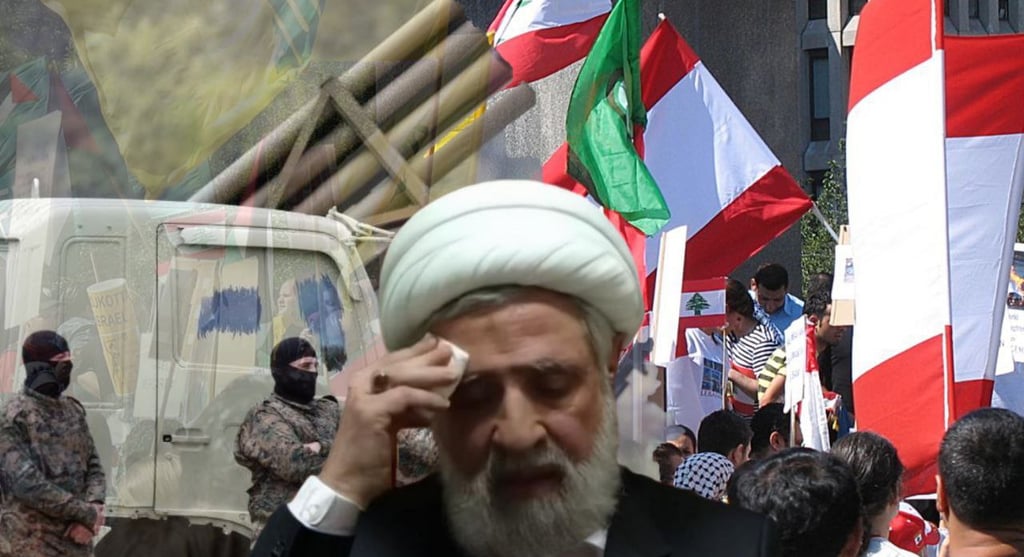Hezbollah: From a Battle of Support to a Battle for Survival?
This article discusses Hezbollah’s reality after the 2024 war, highlighting the consequences of defeat and the decline of its support in Lebanon among people.
Bilal Nour Al Deen
7/28/20253 min read


In October 2023, Hezbollah took what it believed was a calculated decision to open a front against Israel in support of Gaza. The message from the southern suburbs of Beirut was clear: there would be no calm in Lebanon unless there was calm in Gaza. For a group that had long portrayed itself as the spearhead of resistance in the region, the moment seemed ripe to secure a victory for the so-called “Axis of Resistance.”
But by the end of 2024, Hezbollah was no longer in a position of initiative, but rather on the defensive—perhaps even worse.
In the early months of the support battle, the group rejected international de-escalation proposals, most notably the initiative put forth by U.S. envoy Amos Hochstein. The plan suggested a ceasefire between Lebanon and Israel, disregarding Gaza, and a withdrawal of Hezbollah’s Radwan forces from the border areas in exchange for potential gains for Lebanon. At the time, the group felt politically empowered and interpreted Israel’s situation as a sign of weakness. It believed it had the upper hand.
That bet proved to be wrong—and costly.
According to some sources, Israel had knowledge of 80% of Hezbollah’s missile storage sites, as well as the central locations of the group’s commanders—including Hezbollah Secretary-General Hassan Nasrallah, who was assassinated in the early days of the war.
The two-month battle ended in a significant defeat for Lebanon, with a ceasefire agreement many considered humiliating for the country, especially as it granted Israel a certain freedom to move and target whoever and wherever it wanted in Lebanon.
The battle ended with the following outcomes:
– A halt to the Lebanese front while fighting in Gaza continued.
– Israeli occupation of five previously unoccupied areas.
– The capture of at least ten Lebanese individuals.
– Widespread destruction of dozens of Lebanese villages, alongside the return of many settlers to northern Israel.
– Withdrawal of Radwan forces and Hezbollah fighters from southern Lebanon.
– Disarmament of weapons sites and handing over of underground stockpiles and tunnels to the Lebanese army.
– Increased pressure on Hezbollah to disarm across all of Lebanon.
In other words, everything Hezbollah had refused before the war, it accepted after those devastating blows.
The crisis now is not just in equipment or leadership. Hezbollah today suffers from a severe security breach, with Israel still able to target its members inside Lebanon—despite what the group calls “preventive measures.” In fact, who says the movements of the group’s leaders are not exposed? If this vulnerability continues, Hezbollah may lose its ability to take initiative in any future confrontation and be forced to operate within predefined limits.
More dangerously, there’s a shift in public sentiment. The resistance, which once thrived on societal legitimacy, now faces rejection from large segments of the Lebanese public who view the war decision—and its consequences—as a direct cause of the country’s destruction, economic collapse, and security instability. The weapon is no longer seen as a tool of deterrence but rather as a strategic burden threatening Lebanon’s stability.
In this context, voices are growing louder within the Lebanese state—led by President Joseph Aoun, Prime Minister Nawaf Salam, and political figures like Walid Jumblatt—calling for the implementation of UN Resolution 1701, which mandates that only the state holds arms. This pressure reflects not just a political stance but a clear international direction: it is no longer acceptable for a domestic actor to retain its weapons, especially if those weapons fail to deliver “victory.”
Hezbollah today stands at a crossroads: either it honestly reassesses its experience and recognizes that post-2024 is unlike anything before, or it continues its policy of denial and loses what remains of its symbolic, moral strength—let alone its material power. Clinging to slogans of “resistance or martyrdom,” claiming that surrendering weapons is treason, and promising that the next war will be a decisive battle—these no longer resonate with a broad audience. In fact, this rhetoric is losing appeal even among some within Hezbollah’s own support base, who have begun to ask painful questions about the cost, the outcome, and the purpose.
Stubbornness and achieving accomplishments were possible between October 8, 2023, and November 27, 2024. After that, no weapon will help, and no words will plead.
Contact me via email
SUBSCRIBE TO MY NEWSLETTER
hello@bilalnouraldeen.com
© 2025. All rights reserved.